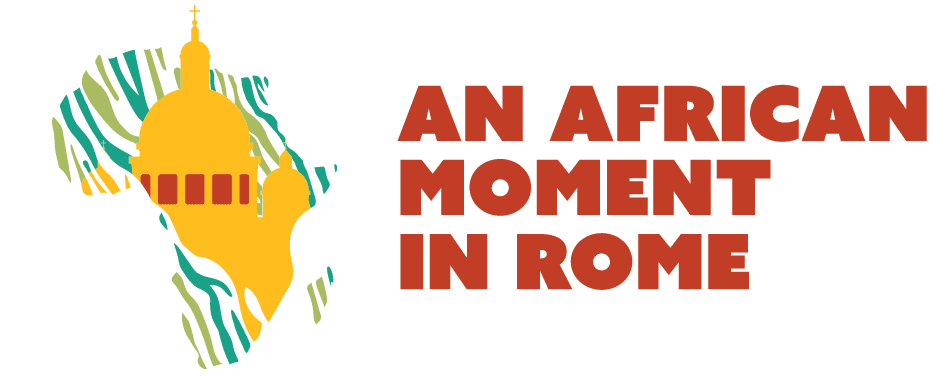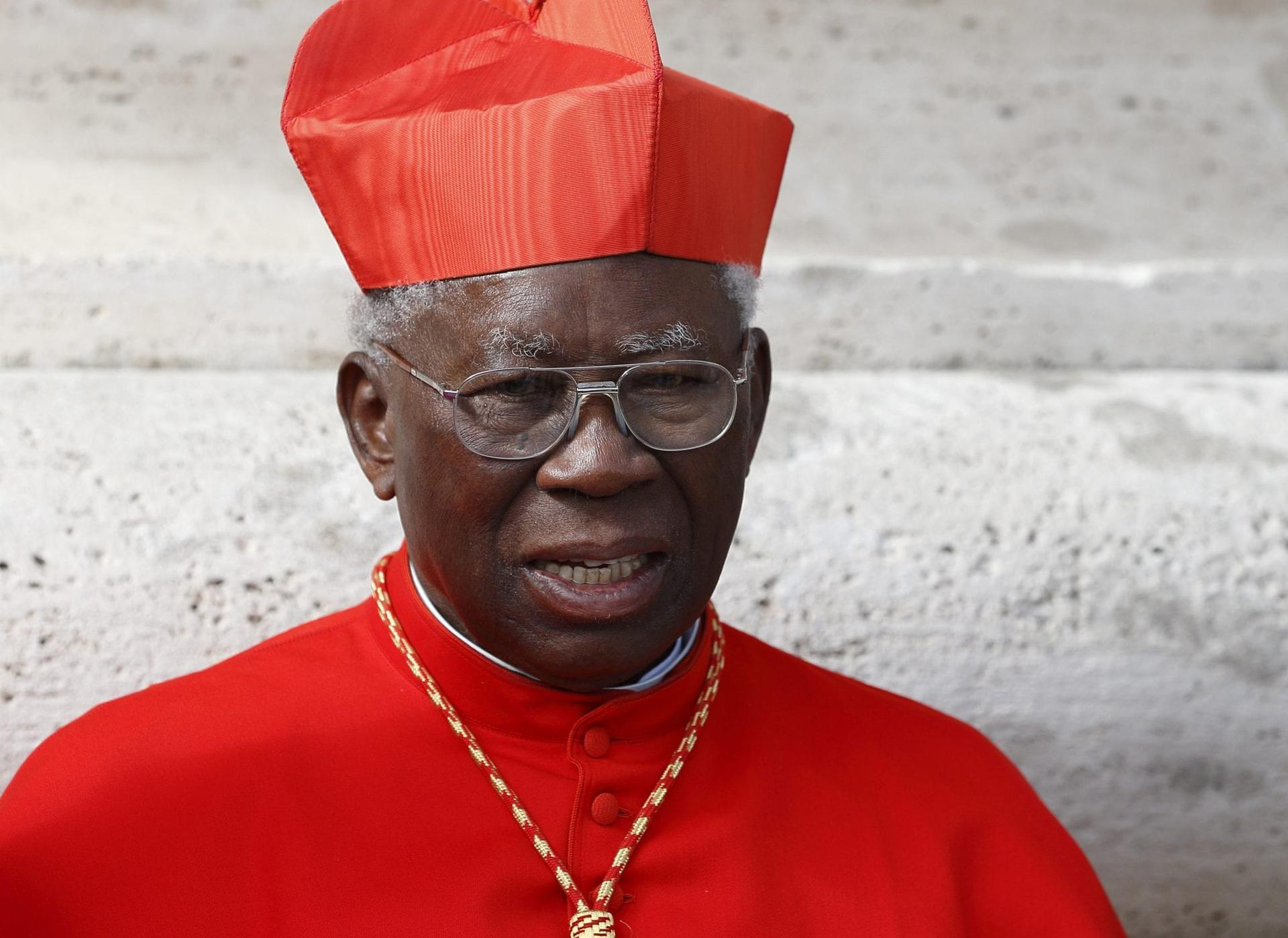 ROME – Nigerian Cardinal Francis Arinze is now something of a lion in winter, a robust 84 years old. You’d never know it, however, from watching him in action, as he remains remarkably vital and engaged.
ROME – Nigerian Cardinal Francis Arinze is now something of a lion in winter, a robust 84 years old. You’d never know it, however, from watching him in action, as he remains remarkably vital and engaged.
Among other things, Arinze is still a powerful voice for African Catholicism. When ten African bishops issued a collection of essays in advance of the October 2015 Synod of Bishops on the family, they asked Arinze to contribute the preface, knowing that putting his name on the book gave it an instant injection of credibility and news appeal.
(The book was titled Christ’s New Homeland – Africa, published by Ignatius Press.)
Though Arinze in particular, and the African church generally, is often seen as fairly “conservative” or “traditional” on matters of sexual morality, the family and marriage, Arinze told Crux on Wednesday that’s not how things feel to him.
“That word, ‘conservative,’ is understood by people in different ways,” he said. “Suppose you say that when we did arithmetic, we learned that 2 +2 = 4. It’s still the same, so am I then ‘conservative’ for saying so?”
Arinze also suggested that African culture reinforces traditional Christian beliefs.
“In Europe and North America, the culture is secularistic. Religion is treated as a private matter, and people seem to apologize for their religion,” he said. “In most countries of Africa, religion is a happy matter. When I go home, I put on my cassock in the airport, and it’s just normal.”
On the delicate issue of inculturation, meaning how much space Catholicism can provide to incorporate traditional African beliefs and gestures, Arinze expressed skepticism about liturgical dance, but also recognition that African worship is bound to be more expressive.
He brought the point home with a colorful explanation.
“If you give a basket of bananas to an American from the U.S. to bring to the celebrant, and you give the same basket of bananas to an African, their movements towards the altar will be a bit different,” he said.
“The Nigerian will move a bit left, a bit right,” he said. “It’s the whole body showing joy in the giving.”
Finally, Arinze basically brushed off a question about whether the Church will see an African pope anytime soon.
“I don’t think it’s relevant where the pope comes from. The most important thing is that the pope can deliver the goods,” he said.
“If he doesn’t deliver the goods, what do we gain even if he comes from my own village? For me, it’s not important. What matters is that he’s a Catholic!”
Arinze’s comments came during a break in a major four-day conference on African Christian theology being staged March 22-25 by the University of Dame, and held at the university’s “Global Gateway” center in Rome.
The following are excerpts from that interview.
Crux: What’s distinctive about Catholicism in Africa?
Arinze: Every people embraces their faith. But as each people have their own language, their style, their way of celebration, so it is with their way of living. An Italian Catholic would be a bit different from an Irish Catholic, and also from a German Catholic. Therefore, a Nigerian Catholic, a Tanzanian Catholic is different.
In short, we’re really saying that faith, being one, is incarnated in each culture. Each people will live that faith and be themselves, that is the best of their culture, should be given life by their faith. As Pope John Paul II sometimes would say, the faith would sprout like a tree growing in its natural surroundings.
Let’s talk about your own country. Can you give us two or three characteristics of the faith sprouting in Nigeria?
One would be love of community and celebration. Our people, no matter how poor, they like to associate with others. In can be in joy or in sorrow. It can be a wedding, it can be a funeral. But the individual is never alone. That is a value [which is] very precious for the Church.
If it’s a religious profession of a sister or a brother, the ordination of a priest of a bishop, or even if it’s that I go on holidays from Rome to Nigeria, there’s no question about being left alone. Our people, our community mind. They come, and not necessarily with any appointment given. They just ask, is the cardinal in? Because they know that I’m in, and that I’ve come from far away.
It’s just normal. And on Sundays I go and say Mass. And after Mass, they say to me, tell us cardinal, what’s been going on in Rome in the last 12 months. And they say, those who are in a hurry can go home, and most of the people sit down. And we communicate.
Another area is the whole idea of singing and joy in celebration. Not dancing necessarily. Europeans and Americans think Africans are dancing all the time. It isn’t necessarily that. But if you give a basket of bananas to an American from the U.S. to bring to the celebrant, and you give the same basket of bananas to an African, their movements towards the altar will be a bit different. The Nigerian will move a bit left, a bit right. It is the whole body showing the joy in the giving.
In your mind, that’s not really dancing…
Not really. But they put their mind, and body, and soul in the act. And when they dance it becomes a lot more delicate. Because there are many types of dances. We have a traditional war dance. There’s a traditional normal dance for recreation, which we would have at a parish hall after the Mass when there’s a bishop visiting. And then we have the dance for the women who are looking for husbands. That would be a little provocative, because they’re looking for a husband, that’s the purpose of the dance. But you can see none of it fits into the Mass, because the reason for the Mass is adoration, thanksgiving, asking for what we need. That’s not going to go very well if there’s anything funny during the holy Mass …
Then there’s the sense of responsibility our people feel for the Church. For instance, if you have a seminarian who’s a little shaky, who’s engaged in some funny business, one of the ladies from the Catholic Women’s League is going to know.
They tell you about it?
They’re not likely to tell the bishop. But one of the women could say to the parish priest, “Are you and the bishop actually going to ordain that young man a priest? Do you really want him to be a priest?” That becomes an indication of what they think.
So you have a kind of informal intelligence network?
I wouldn’t call it an intelligence network. I call it taking an interest. That we are the Church, and if this young man is ordained, he’s going to work for us, so we have a say. When I was an archbishop, I was very happy with that. For the seminary I had women there who had brought up their children well, and men, and priests, and of course religious sisters. Because they’re concerned, they see the Church as all of us, which is healthy.
At the beginning of this conversation I described you as distinguished, which sometimes in English can be a synonym for old…
Which I would qualify for!
What I mean is, you’ve been around for a while. Today, it seems to me that African bishops have become more outspoken and more willing to be protagonists in the global church, including their role in the last two Synods of Bishops on the family. Do you think that’s true?
It’s true, what you have noticed. It’s also understandable, because when Vatican II was celebrated 55 years ago, the African bishops were very few in number. Most of the bishops working in Africa were missionary bishops who brought the faith there, and they have done very well.
There’s a big difference among the countries … you have to remember that there are 54 countries in Africa. But gradually then, with local clergy, there come bishops … It’s a normal development. And also the bishops and cardinal themselves get more experience of what the Church is, and so they’re bound to contribute more. It’s just a normal development of divine providence.
Many people think the African church is more ‘conservative’ or ‘traditional’ then others, say, in Western Europe. Is that a fair perception, or do those categories just not apply?
That word, ‘conservative,’ is understood by people in different ways. Suppose you say that when we did arithmetic, we learned that 2 +2 = 4. It’s still the same, so am I then ‘conservative’ for saying so? But, there are points upon which there can be various opinions.
Also, the family has challenges in every country in the world. There is no country in the world where everything is easy.
In some parts of the world, what may be most difficult is divorce, people deciding to break up. There’s also divorce in Africa, but generally people don’t. If a man marries and wants sons, because sons are very important in African culture – the sons inherit the property, while daughters are expected to go to their husbands – so if your wife doesn’t have a son, you get another wife. He doesn’t reject the first wife, she stays there, so he’s got two of them now, in his hope to have a son.
We may say, ‘Ah, this is polygamy!’ But the African polygamist will reply, ‘You German, or Frenchman, or U.S. man, you divorced and took on another person. I didn’t divorce, I kept the first wife, I just got another one! Isn’t that better?” While we don’t support either, we see the challenge to Christianity.
In many countries in Africa, there are problems with polygamy, with men who take a second wife. They don’t really have any bad intentions, they just want a son. Remember Henry VIII? So, there are differences in emphasis.
Then, there’s the influences of the general culture. In Europe and North America, the culture is secularistic. Religion is treated as a private matter, and people seem to apologize for their religion. In most countries of Africa, religion is a happy matter. When I go home, I put on my cassock in the airport, and it’s just normal.
You don’t have to apologize for anything?
Not at all! When I get to the airport, instead of looking at my passport the customs people want a blessing. So you see, there’s a whole climate in society that’s influencing the bishops.
So what some see as ‘conservative,’ you simply see as normal?
Yes. And also, the society is not against Christianity. In many ways, Christianity is challenged much more in Europe than in Africa.
Final question: Over the next 50 years, let’s say, what are the odds of there being a pope from Africa?
I don’t think it’s relevant where the pope comes from. The most important thing is that the pope can deliver the goods. If he doesn’t deliver the goods, what do we gain even if he comes from my own village? For me, it’s not important. What matters is that he’s a Catholic!






